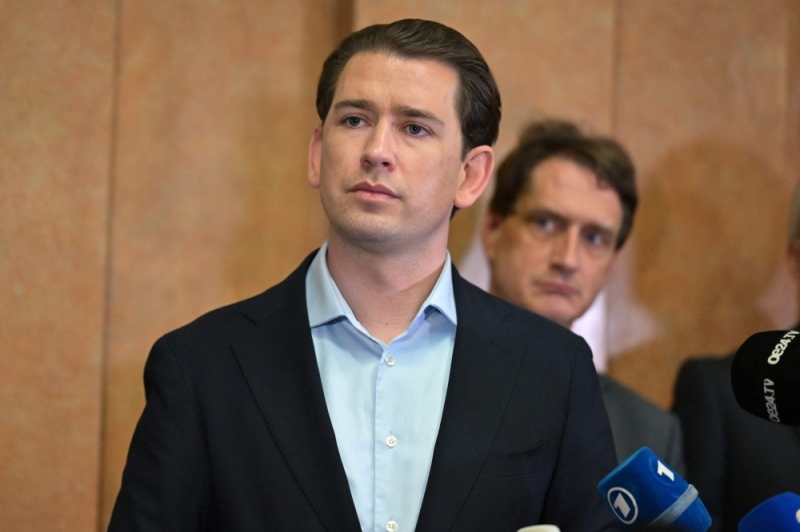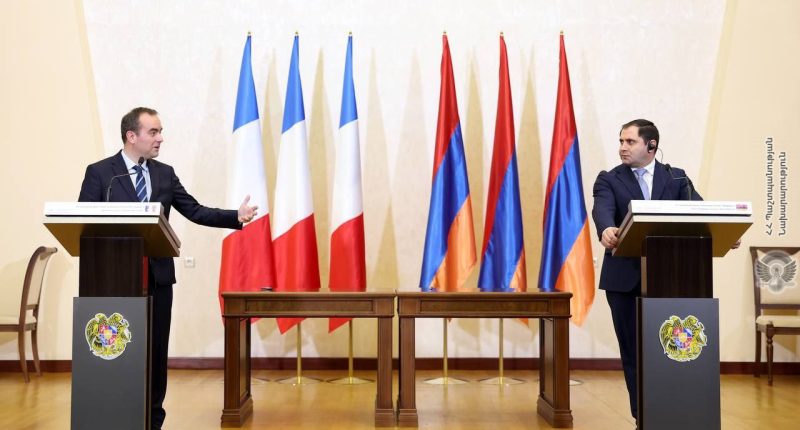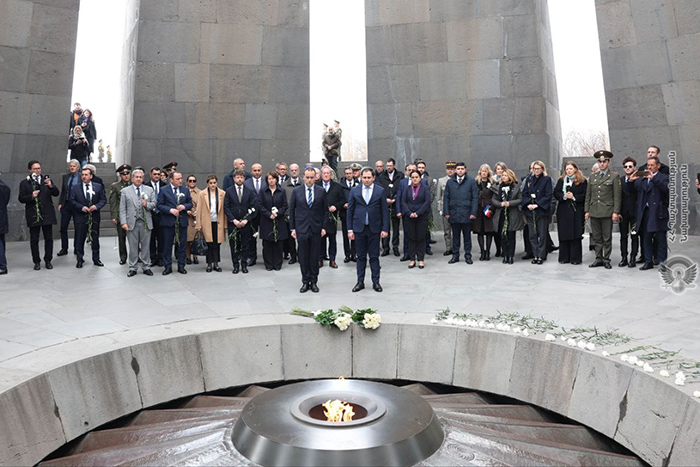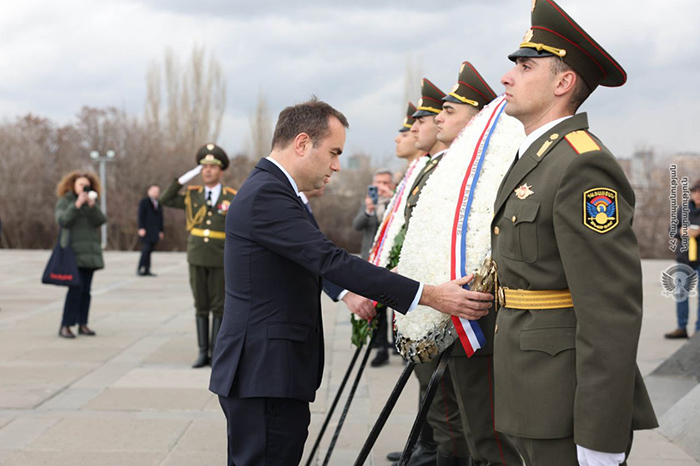
Nearly all imported rice samples exceeded the U.S. Food and Drug Administration's recommendation for children's consumption.
PHOTO: Reuters
PORT-AU-PRINCE - US rice exports to Haiti, which account for the bulk of supplies of the country's key food staple, contain unhealthy levels of arsenic and cadmium, heavy metals that can increase risks of cancer and heart disease, according to a recent study by the University of Michigan.
Haiti is among the United States' top buyers of rice, alongside Mexico and Japan, and cheap imports are more affordable than local options in the Caribbean nation, the poorest state in the Western Hemisphere.
According to the study, average arsenic and cadmium concentrations were nearly twice as high in imported rice compared to Haitian-grown product, with some imported samples exceeding international limits.
Nearly all imported rice samples exceeded the US Food and Drug Administration's recommendation for children's consumption. The study did not evaluate levels of toxins in other importing countries.

The US FDA and State Department did not immediately respond to a request for comment.
The study, which attributed the dominance of imported rice to lower import tariffs and long-term contracts signed during political turmoil in the late 1980s and 1990s, said Haiti imports nearly 90 per cent of its rice, almost exclusively from the US
Former US President Bill Clinton, who helped push subsidies of US rice to Haiti, later called the move a "mistake" saying it had battered local production capacity.
The study also pointed to comparatively loose US limits on concentrations of arsenic and cadmium, which can leach from both human and naturally occurring sources to contaminate food and water. Rice is especially prone to absorb these metals.
The report cited Louisiana, Texas and Arkansas as top exporting states.
When researchers ran the study in 2020, they found that Haitians on average consumed 85 kg of rice per year, compared to 12 kg in the US, putting especially young Haitians at far greater risk of developing related health complications.
"The flooding of US rice into Haiti is not only economically violent for Haitian peyizan who struggle to sell their local product, but also violent toward the long-term health of Haitian consumers," the report said.
"By maintaining a system dependent almost exclusively on US rice, Haiti is importing a substantial amount of risk."
The report called for an ethical investigation into US rice exporters, measures to strengthen Haiti's agricultural sector and flagged a "dire need" to boost the country's food safety regulations.
A violent conflict between heavily armed gangs has been spreading to Haitian farmlands, further pushing up food prices. The United Nations estimates over 300,000 have fled their homes and that some 40 per cent of the population is going hungry.
ALSO READ: Police fire tear gas as hundreds protest government in Haiti
By AFP
February 23, 2024

Junior, a Haitian migrant, poses for a picture in Mexico City on January 27, 2024
Yussel Gonzalez and Diane Merveilleux
It wasn’t his first choice, but Mexico is now home for Evens Luxama — along with thousands of other Haitians forced to put their hopes of migrating to the United States on hold.
The 34-year-old is one of a growing number of people from the crisis-torn Caribbean nation pursuing what activists have described as the “Mexican dream,” building a life in a land that migrants traditionally hurried through.
“I wanted to go to the United States, but I don’t think there’s another country that offers the opportunity that Mexico does right now,” said Luxama, who hopes his partner and young daughter will join him in the Mexican capital soon.
“In Mexico, they accept you, not only Haitians, but all foreigners,” he told AFP.
“They do everything to get you regularized, so that you have your papers, and with your papers, you can bring your family to live with you,” he said.
Haiti, the poorest country in the Western Hemisphere, has seen years of worsening security due to raging gang violence, with its political, economic and public health systems also in tatters.
Luxama fled overseas last year after a gang kidnapped a cousin and the sister of his girlfriend, who were released after paying a ransom.
At the time, the Mexican embassy was the only one open in Port-au-Prince to process his visa request.
Luxama now works in Mexico City as an editor at a video production company — one of an unprecedented 141,000 people who sought refuge in the Latin American nation in 2023, mostly from Haiti, Honduras and Cuba.
In a recent video call to his parents in Haiti, he asked about the situation back home.
“You already know, son — a lot of problems,” his father replied.
Haiti has spiraled deeper into chaos since president Jovenel Moise was assassinated in 2021.
Gangs run rampant in large swaths of the country, and homicides in Haiti more than doubled last year to nearly 4,800, according to a UN report released last month.
In October, the United Nations Security Council authorized the deployment of a multinational force to help restore order.
“It’s almost impossible to live in Haiti,” said Luxama, who fears that he will be powerless to help his family when danger comes.
– ‘Mexican dream exists’ –
Migration from Haiti is not a new phenomenon for Mexico.
In September 2021, after a deadly earthquake in their country, thousands of Haitian migrants crowded into the Mexican border city of Ciudad Acuna hoping to cross over to the United States.
There were already Haitian communities in Tijuana on the Mexican-US border and the southern city of Tapachula, where thousands gathered seeking permits to travel through Mexico to the United States.
These days, Haitians are also a growing presence in Mexico City, many of them working in low-paid, informal jobs.
Some sleep on the streets in makeshift camps.
Rule changes and the “militarization” of the southern US border are among the reasons prompting migrants to stay in Mexico, said Rafael Velasquez, country director at the humanitarian group International Rescue Committee.
“Many people arrive and when they see that there is an opportunity (in Mexico), that the Mexican dream exists, they decide to give it a try,” he said.
Although the United States is allowing thousands of Haitians with expired travel documents to stay on, it only applies to those who arrived before November 6, 2022.
On a street in the Mexican capital, five Haitians drilled the pavement to install pipes near an abandoned cinema.
One of them, who gave his name as Jony and speaks Spanish, acts as an interpreter between the bosses and the rest of the workers, who speak Haitian Creole.
He was part of a wave of Haitians who arrived in Brazil after a devastating earthquake in Haiti in 2010 that left more than 300,000 people dead.
During the Covid-19 pandemic, many of them headed north from Brazil as well as Chile, citing discrimination and difficulty obtaining legal status, according to New York-based Human Rights Watch.
Every day, Jony travels several hours by subway to and from his workplace, and sometimes spends days waiting to be paid his salary.
Although he originally wanted to go to the United States, he said he stayed in Mexico because “it’s easier to return to Haiti one day.”












